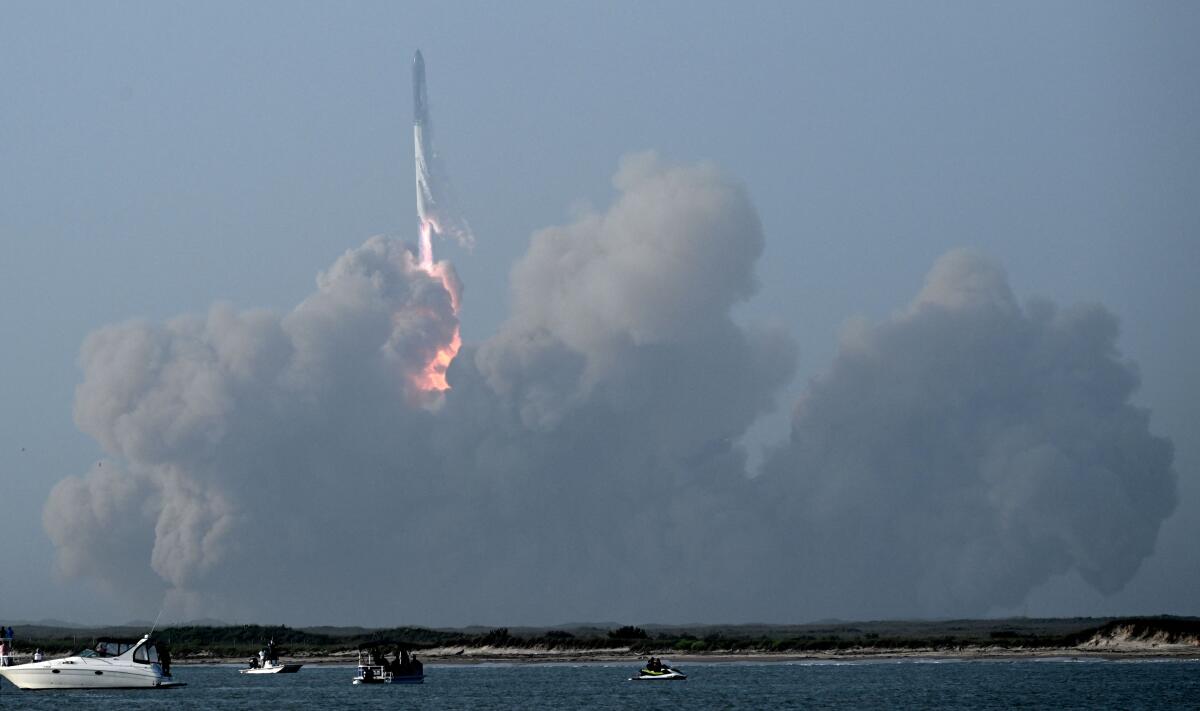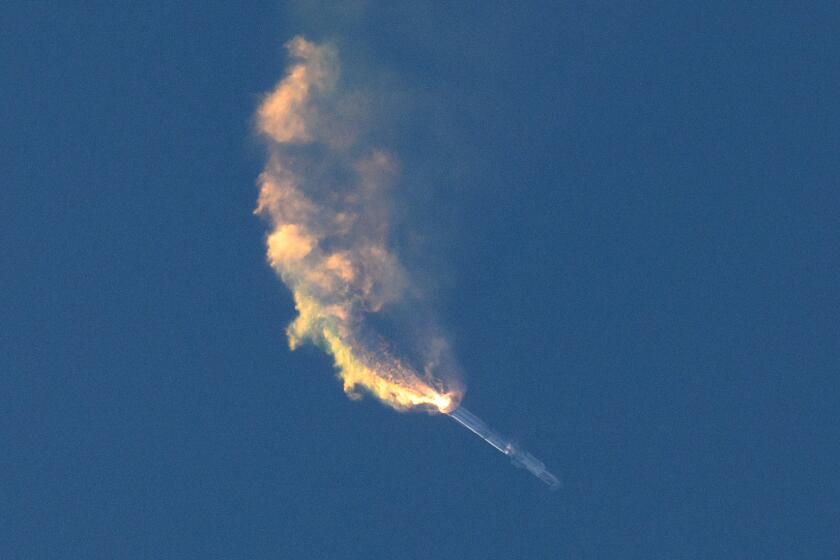SpaceX used wildlife preserve as ‘dumping ground for space waste,’ lawsuit alleges

- Share via
In the latest fallout from SpaceX’s Starship launch, south Texas environmental groups and a nonprofit representing Native Americans are suing the Federal Aviation Administration, alleging that the agency is not adequately protecting the surrounding natural habitat.
The lawsuit, filed Monday, alleges that the FAA did not properly assess the environmental and community impacts of SpaceX’s launch site near Boca Chica, Texas, and that the mitigation measures it has prescribed are not enough to protect nearby wildlife.
The launch site is near the Lower Rio Grande Valley National Wildlife Refuge and Boca Chica State Park. The location is a prime habitat for wintering shorebirds and other wildlife, including ocelots and sea turtles.
After the Starship rocket’s explosive test flight on April 20, the U.S. Fish and Wildlife Service determined that the launch hurled concrete particles up to 6½ miles northwest of the launchpad and created about 385 acres of debris on SpaceX’s site as well as Boca Chica State Park. A 3½-acre fire also started in Boca Chica State Park, the agency said.
Randeep Hothi, a fierce critic of Elon Musk and Tesla, sued the billionaire for defamation in 2019. Musk elected to settle the case for $10,000.
“It’s vital that we protect life on Earth even as we look to the stars in this modern era of spaceflight,” Jared Margolis, a senior attorney at the nonprofit Center for Biological Diversity, said in a statement. “Federal officials should defend vulnerable wildlife and frontline communities, not give a pass to corporate interests that want to use treasured coastal landscapes as a dumping ground for space waste.”
Plaintiffs for the case include the Center for Biological Diversity; the American Bird Conservancy; the Surfrider Foundation, which advocates for protection of the ocean; Save RGV, a local environmental advocacy group; and the Carrizo/Comecrudo Nation of Texas, a nonprofit cultural institution focusing on descendants of the Carrizo/Comecrudo people and other Indigenous groups.
The Carrizo/Comecrudo Nation of Texas joined the lawsuit because frequent road closures in the area due to rocket testing have impeded its ability to perform traditional rituals and customs at Boca Chica beach, according to the lawsuit.
The FAA said in an email that it does not comment on ongoing litigation matters.
The agency had determined in an environmental assessment that SpaceX’s launches would not have a significant impact on the surrounding area and issued the Hawthorne company a launch license for operations there.
SpaceX’s launch of its massive Starship rocket blasted concrete up to 6.5 miles away and resulted in more than 300 acres of debris, according to the U.S. Fish and Wildlife Service.
After discovery of the debris spread, the FAA said SpaceX would be required to have “ongoing monitoring of vegetation and wildlife by a qualified biologist,” including a pre- and post-launch survey, and sending a report to the FAA and other state and federal agencies. The Elon Musk-led company would also be required to work with local and federal authorities to remove launch debris from “sensitive habitats.”
The FAA is also conducting a mishap investigation of the test flight and will not allow the Starship rocket to launch again until it verifies that processes and procedures related to the mishap are not a danger to public safety.
The plaintiffs in the environmental group lawsuit are seeking that the U.S. District Court for the District of Columbia overturn the FAA’s decision to grant SpaceX a vehicle operator license and force the agency to reanalyze the launch site’s environmental impact.
More to Read
Inside the business of entertainment
The Wide Shot brings you news, analysis and insights on everything from streaming wars to production — and what it all means for the future.
You may occasionally receive promotional content from the Los Angeles Times.













